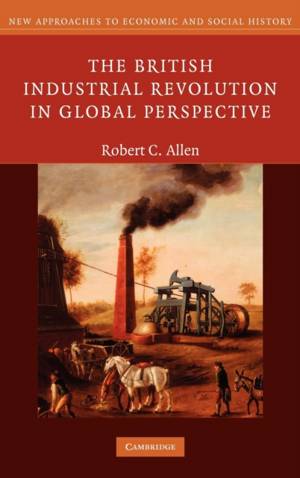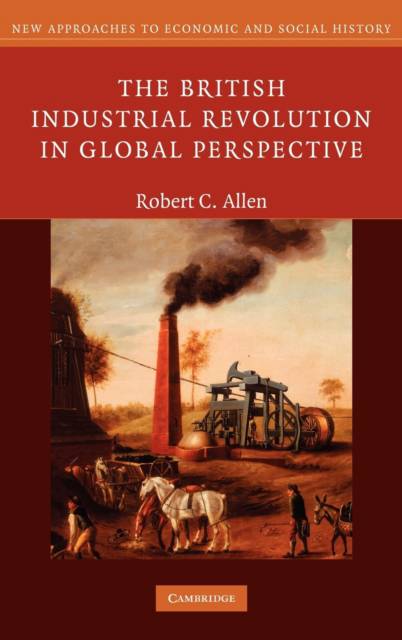
- Afhalen na 1 uur in een winkel met voorraad
- Gratis thuislevering in België vanaf € 30
- Ruim aanbod met 7 miljoen producten
- Afhalen na 1 uur in een winkel met voorraad
- Gratis thuislevering in België vanaf € 30
- Ruim aanbod met 7 miljoen producten
Zoeken
The British Industrial Revolution in Global Perspective
Robert C Allen
€ 172,95
+ 345 punten
Uitvoering
Omschrijving
Why did the industrial revolution take place in eighteenth-century Britain and not elsewhere in Europe or Asia? In this convincing new account Robert Allen argues that the British industrial revolution was a successful response to the global economy of the seventeenth and eighteenth centuries. He shows that in Britain wages were high and capital and energy cheap in comparison to other countries in Europe and Asia. As a result, the breakthrough technologies of the industrial revolution - the steam engine, the cotton mill, and the substitution of coal for wood in metal production - were uniquely profitable to invent and use in Britain. The high wage economy of pre-industrial Britain also fostered industrial development since more people could afford schooling and apprenticeships. It was only when British engineers made these new technologies more cost-effective during the nineteenth century that the industrial revolution would spread around the world.
Specificaties
Betrokkenen
- Auteur(s):
- Uitgeverij:
Inhoud
- Aantal bladzijden:
- 344
- Taal:
- Engels
- Reeks:
Eigenschappen
- Productcode (EAN):
- 9780521868273
- Verschijningsdatum:
- 27/04/2009
- Uitvoering:
- Hardcover
- Formaat:
- Genaaid
- Afmetingen:
- 152 mm x 229 mm
- Gewicht:
- 657 g

Alleen bij Standaard Boekhandel
+ 345 punten op je klantenkaart van Standaard Boekhandel
Beoordelingen
We publiceren alleen reviews die voldoen aan de voorwaarden voor reviews. Bekijk onze voorwaarden voor reviews.











